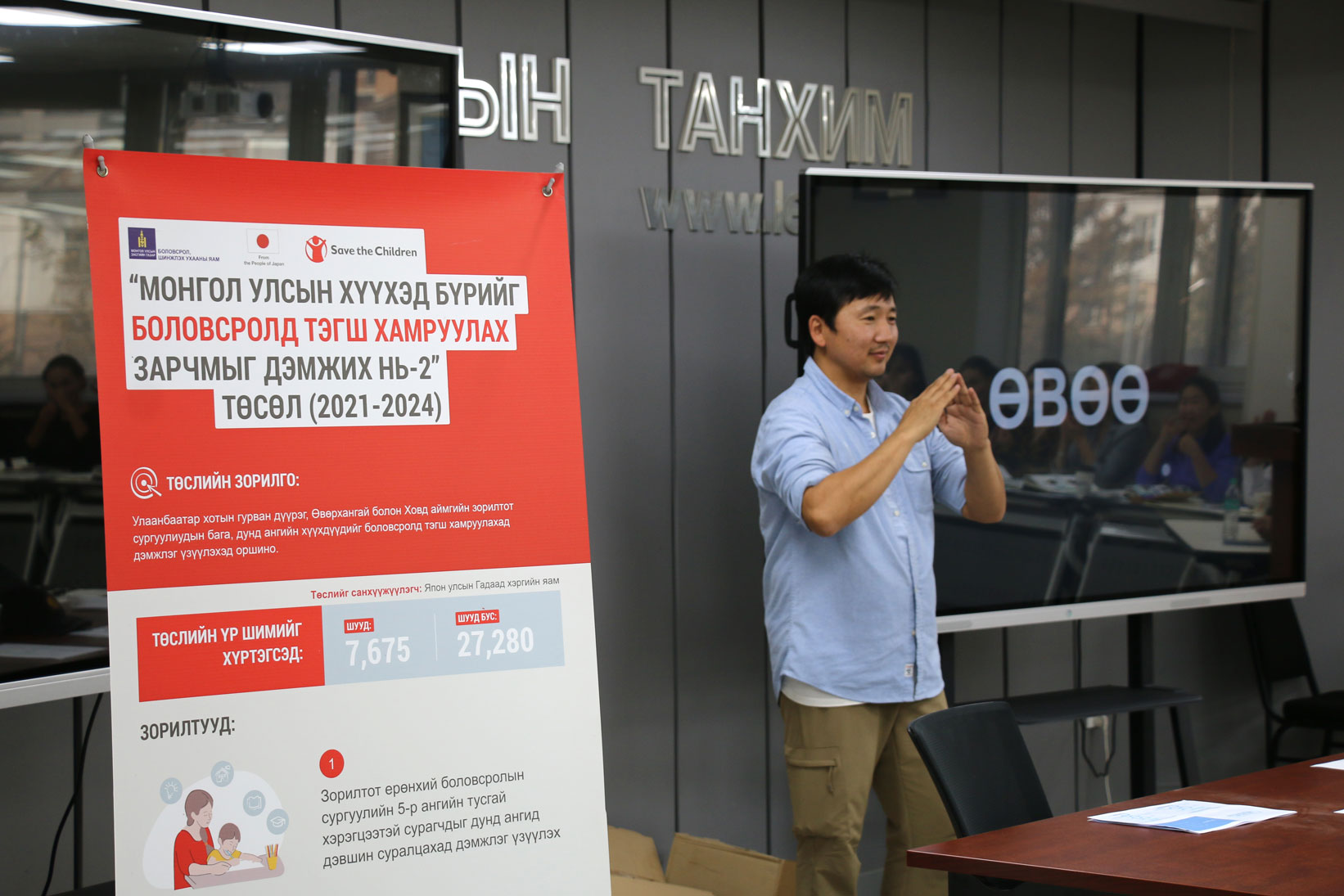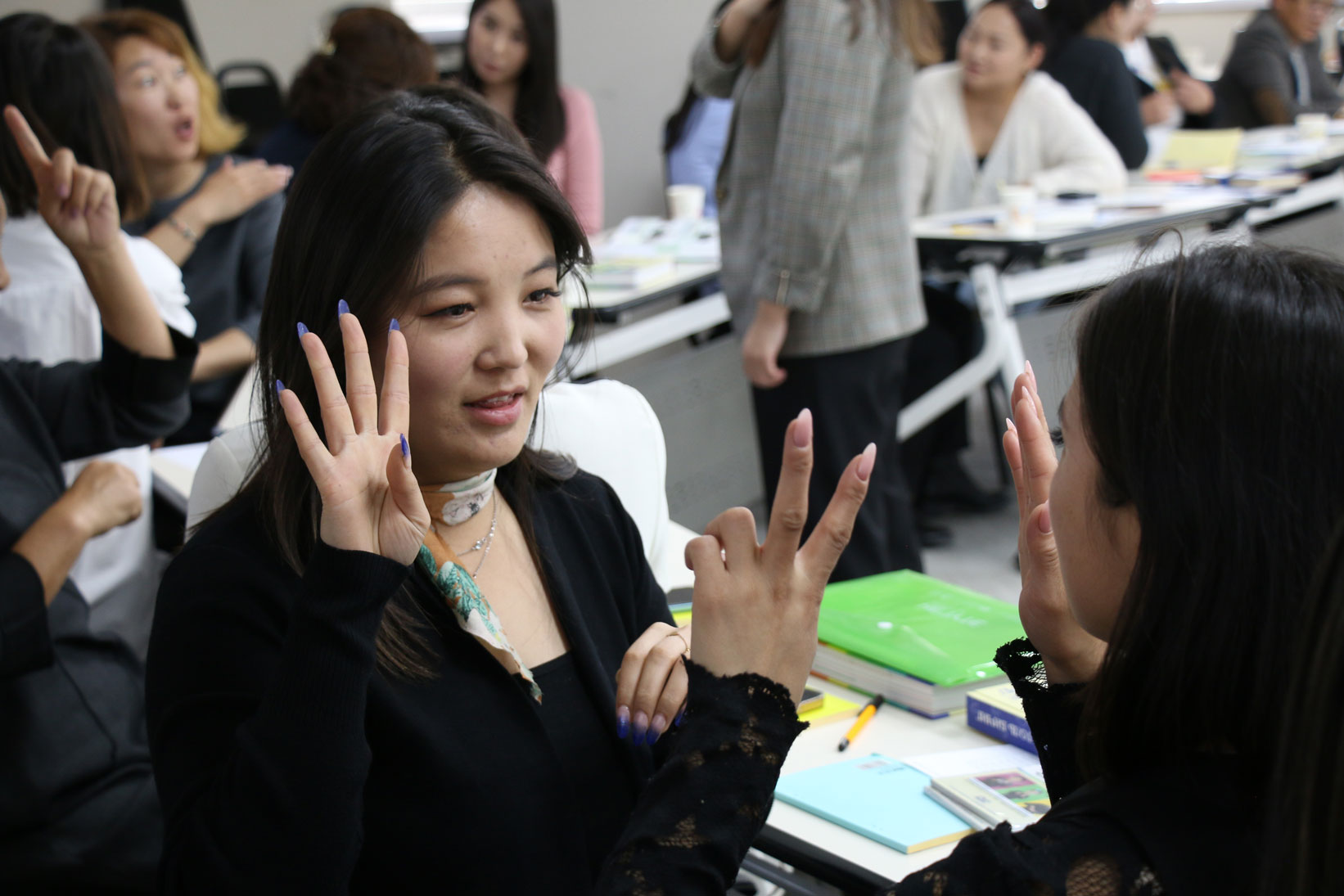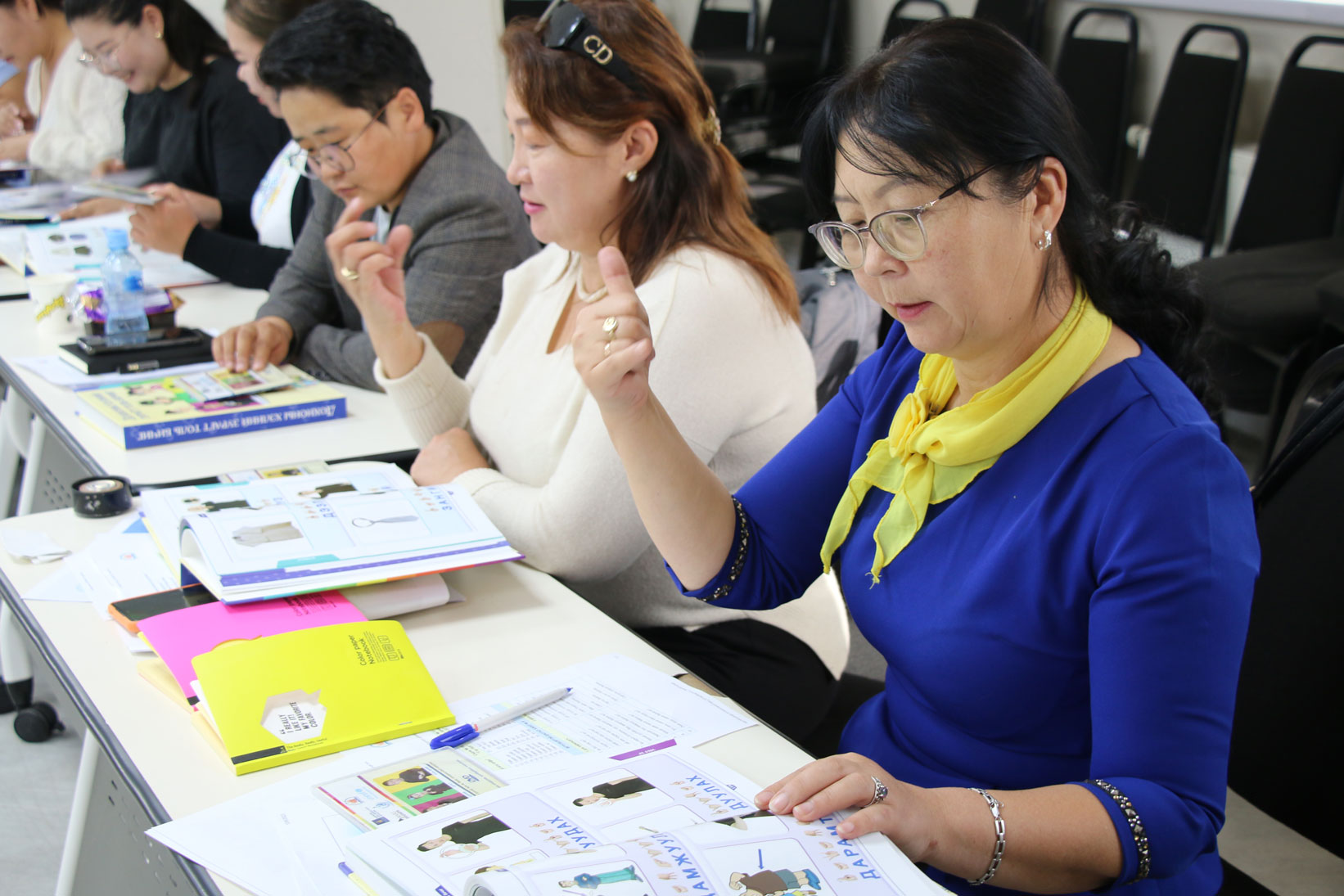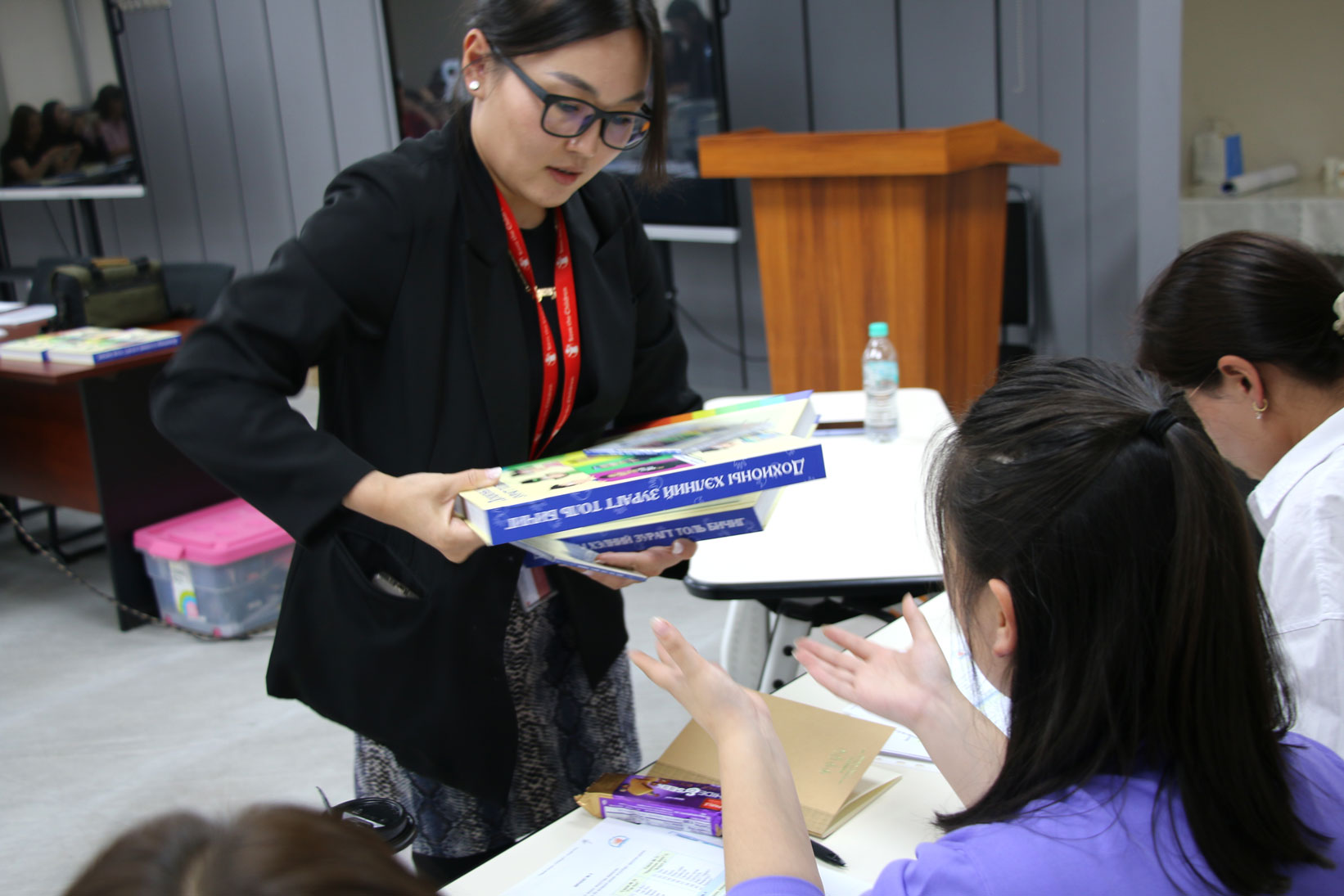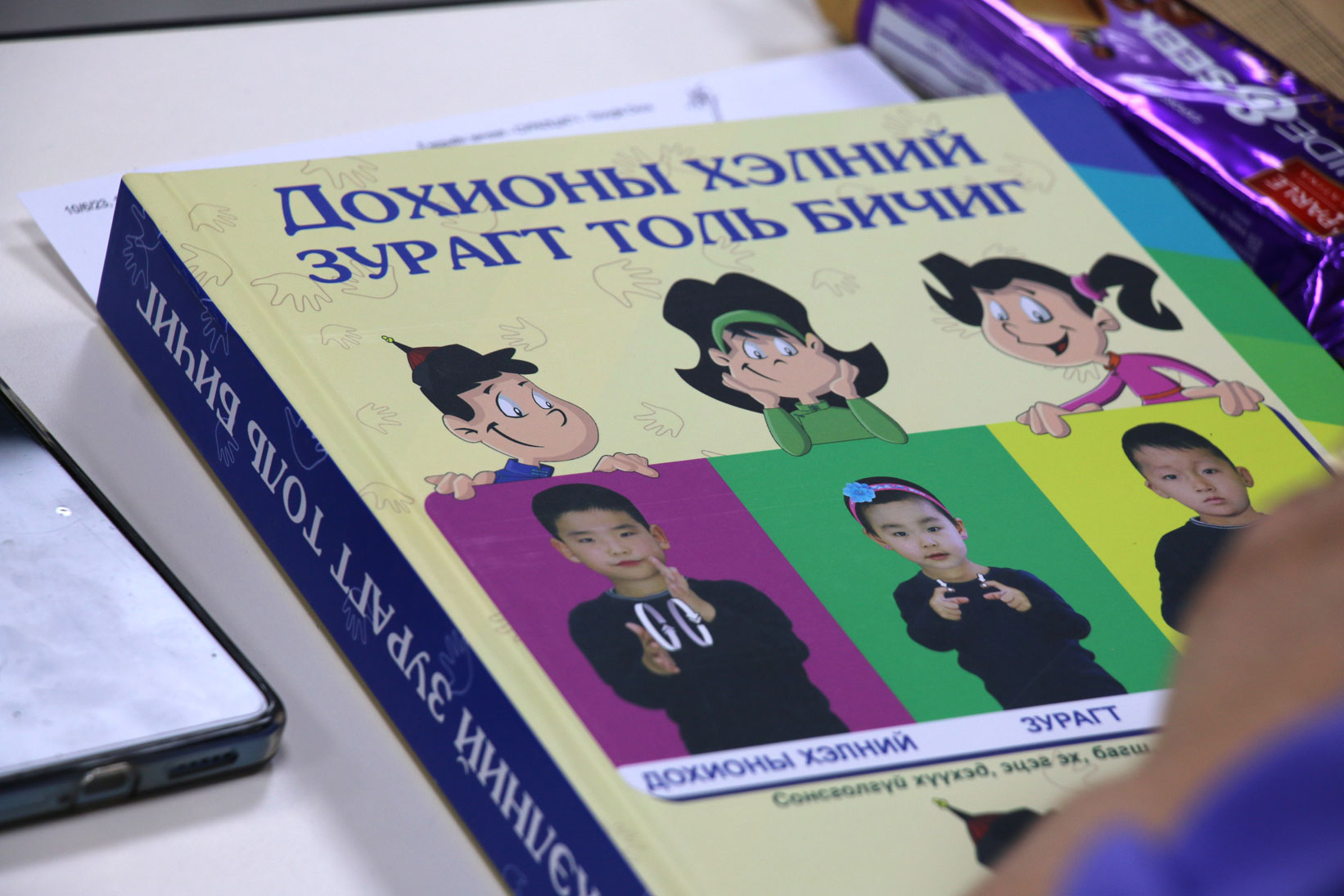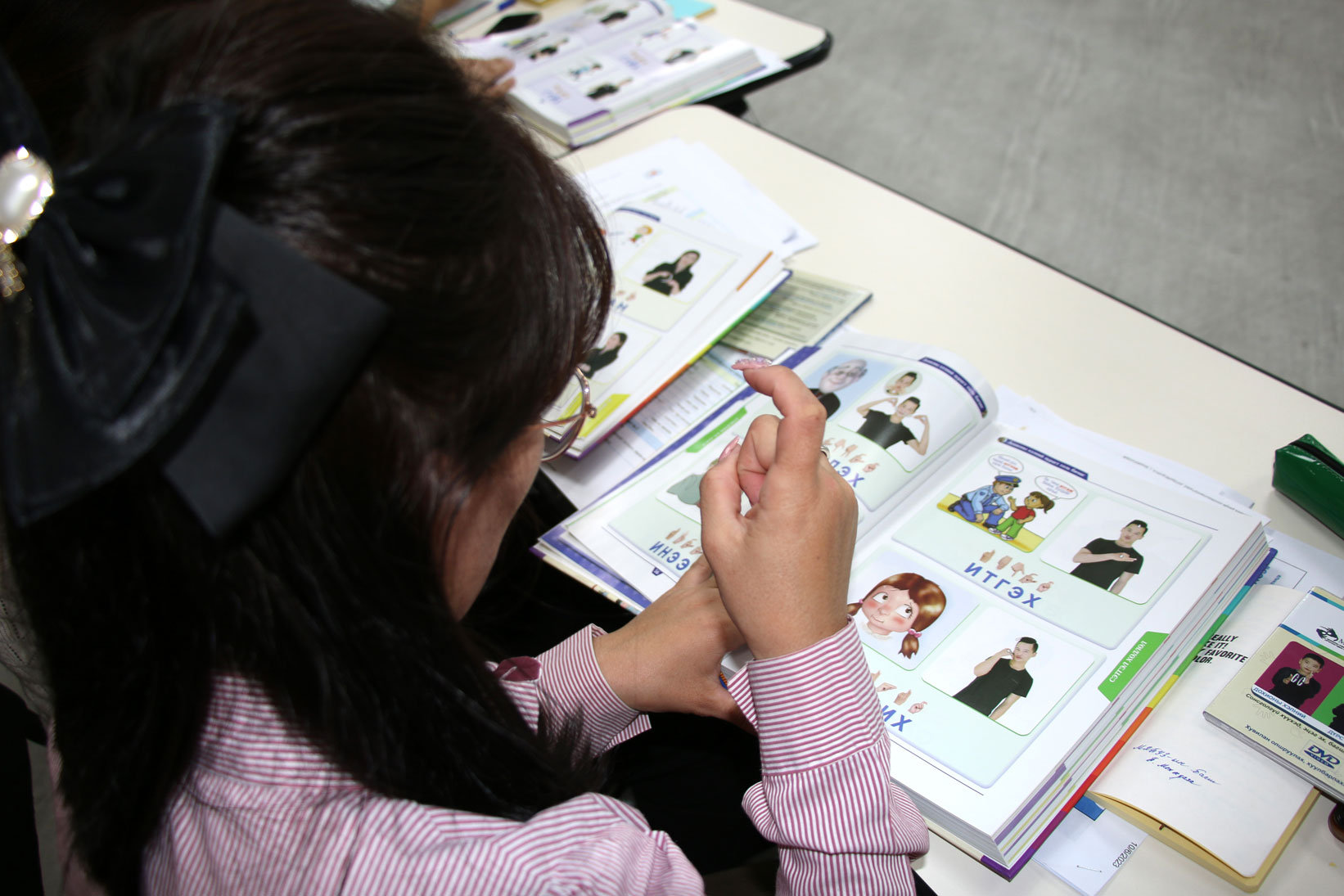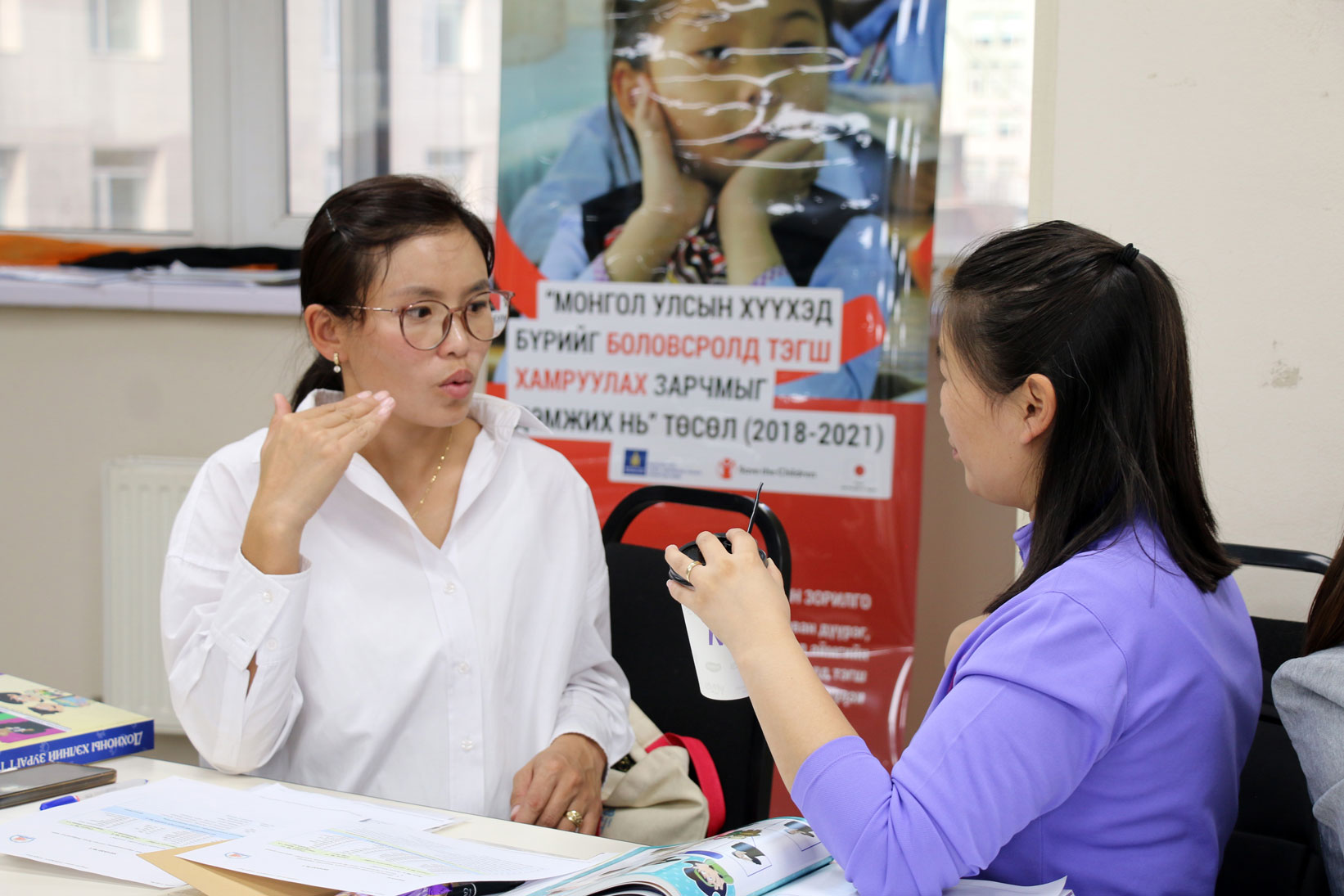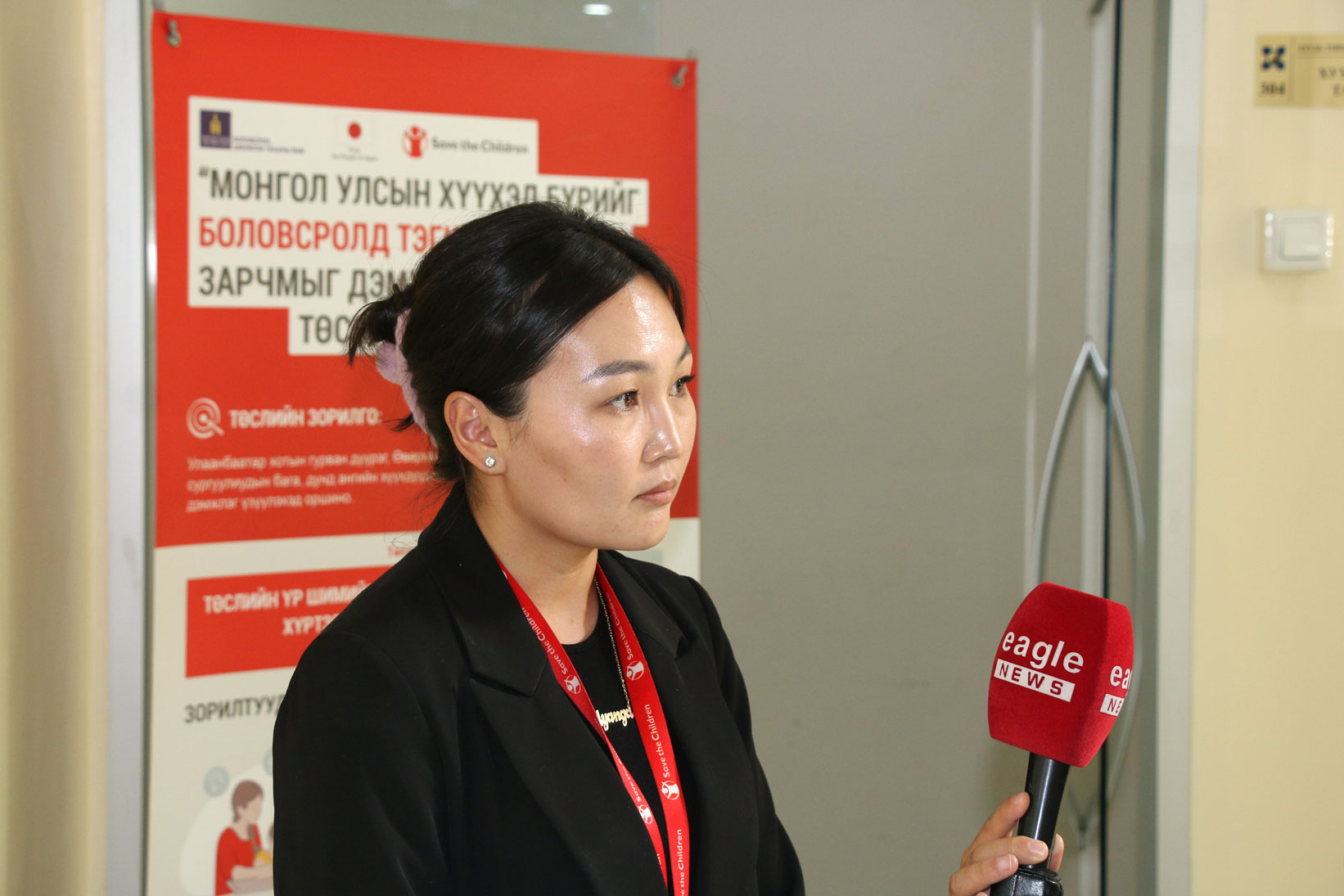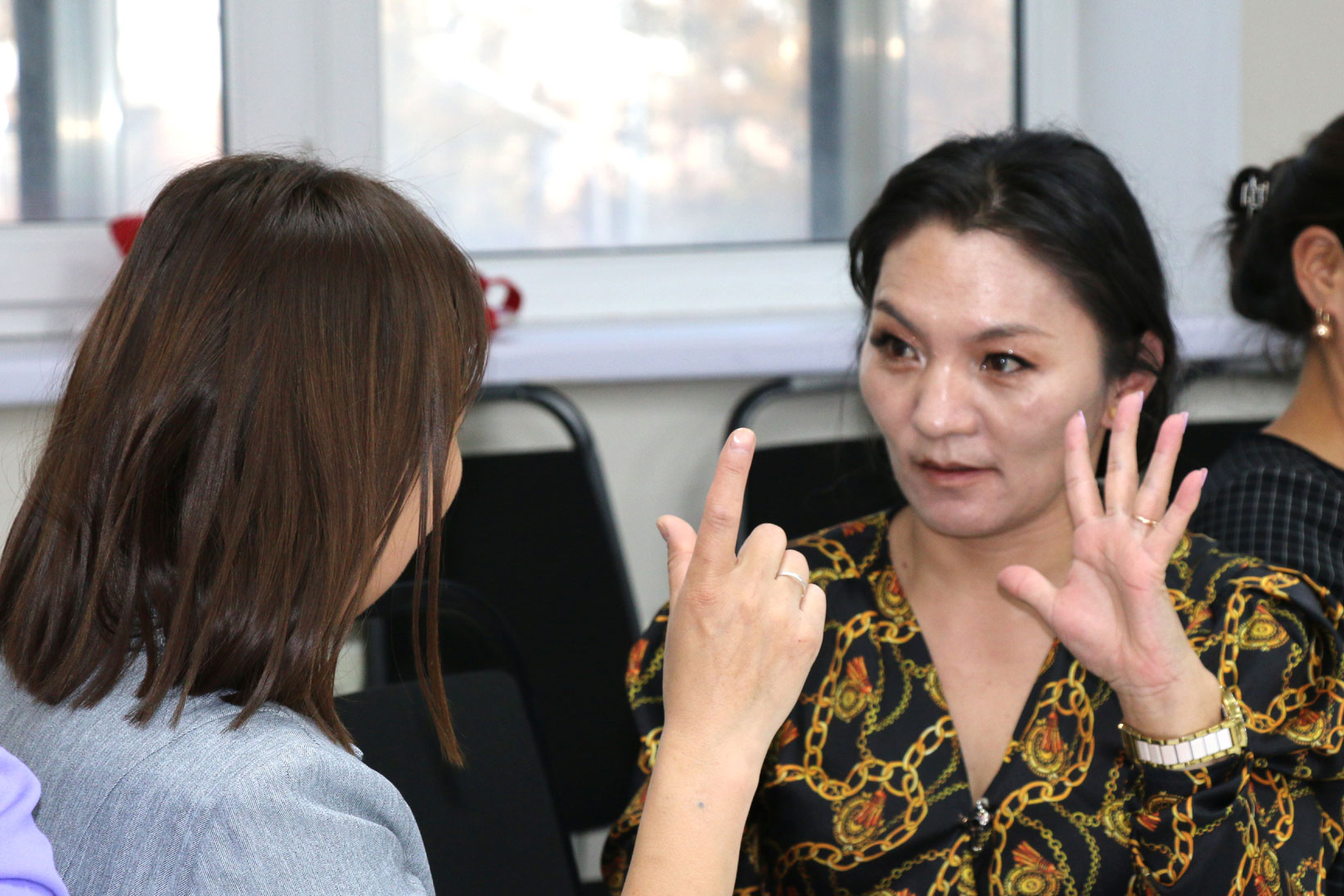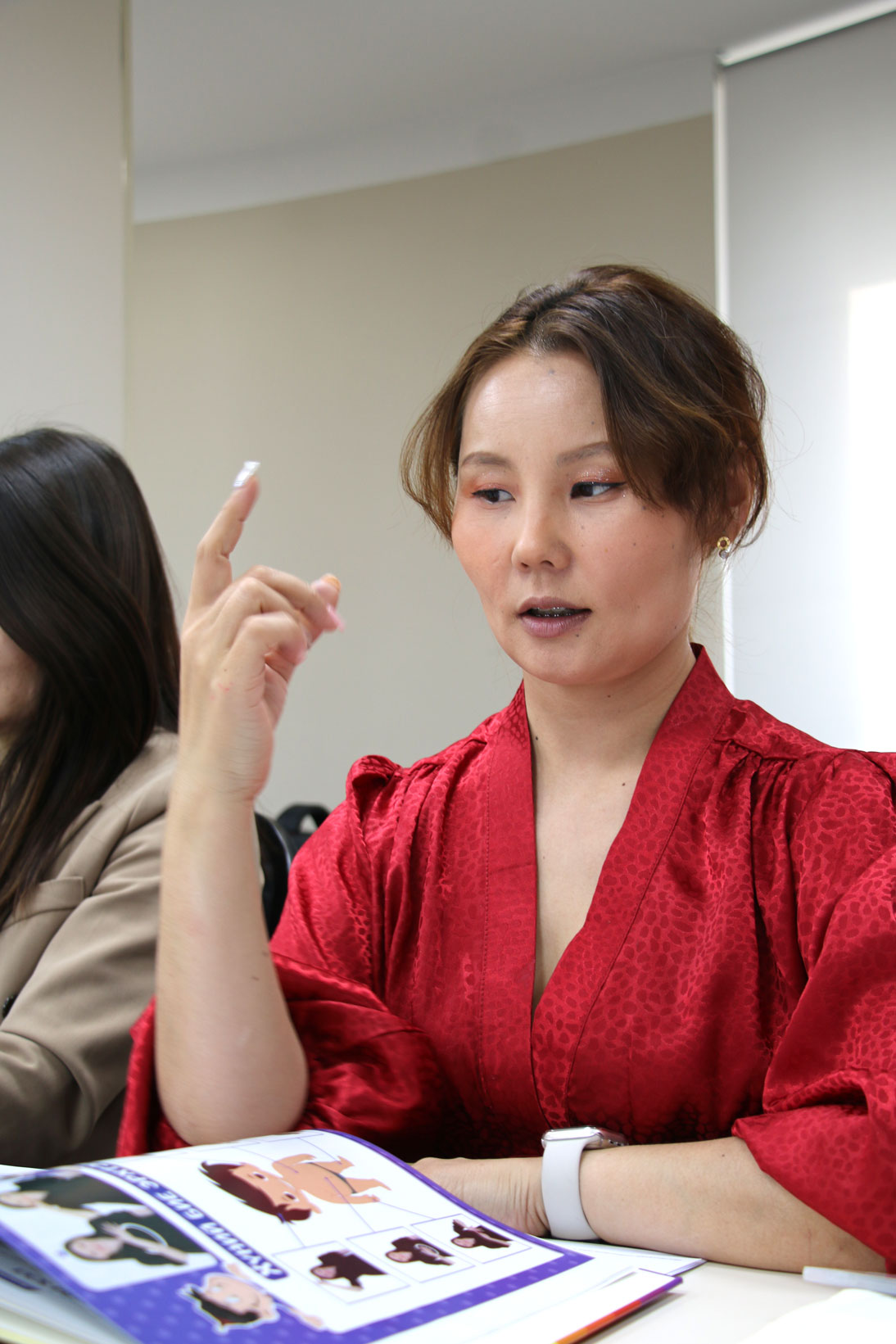Save the Children in Mongolia is implementing the project “Promoting Inclusive Education for Every Last Child in Mongolia-2” funded by the Ministry of Foreign Affairs of Japan between 2021 and 2024 in 16 mainstream schools located in Bayanzurkh, Chingeltei and Songinokhairkhan districts of Ulaanbaatar city, as well as Khovd and Uvurkhangai provinces.
About 50 children with speech and hearing impairments study at primary and lower secondary levels of the project’s target schools. In order to work with these children and address their educational needs, it is necessary for teachers to learn sign language. To help solve this problem, we organized a three-day training session on the basics of sign language in Ulaanbaatar on 9-11 October 2023 in cooperation with the NGO “Mongolian Deaf Education”.
A total of 32 teachers from the target schools participated in the training. In addition, at the request of the Ministry of Labor and Social Protection, one specialist from each of the “Development Centers for Persons with Disabilities” established in Arkhangai, Darkhan-Uul, Dornod, Dundgobi, Khovd and Khuvsgul provinces attended this training.
Teachers studied Mongolian sign language in the three-day training session on the basics of sign language communication. They learned to express themselves with finger letters, counting, greetings, emotions, and facial expressions. They also communicated with each other in sign language. At the end of the training, the teachers and specialists who participated received a certificate of mastery of basic sign language knowledge and skills. These skills will be necessary for working with children with special educational needs and training other teachers and staff.

